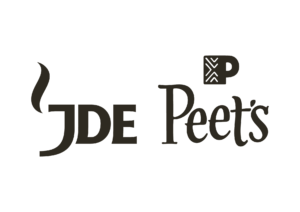
JDE Peet’s Expands Visibility Across 12,000+ Global Suppliers
Jacobs Douwe Egberts (JDE) transformed procurement risk management by leveraging Sedex’s solution to embed systematic human rights due diligence across its extensive non-coffee supply chain.
Through Sedex risk assessment, audits and corrective action plans (CAPs) across approximately 12,000 supplier sites, JDE advanced supplier compliance and internal engagement toward its 2027 target.
The Challenge
As one of the world’s largest coffee and tea companies, starting their sustainability journey, JDE Peet’s faced the complex challenges implementing human rights due diligence across a complex global network of non-coffee suppliers – packaging, commodities, service providers, and vending equipment:
Supplier onboarding hurdles: smaller or family-owned businesses were unfamiliar with Sedex, faced language barriers, or were not confident to share data initially.
Different suppliers maturity levels: majority of European suppliers were already on Sedex, whereas other regions were behind.
Resources vs impact: finding the right trade-off between resources availability and meaningful and effective actions.
Cross-functional integration: Embedding human rights compliance into procurement processes, further evolving the holistic understanding of the supply chain.
“The first part of the implementation was more about training and coaching – making sure people understood why we were doing it. We framed it around human rights as a purpose, but also as risk mitigation.”
Alessio Sorrentino, Global Procurement Sustainability Lead, JDE Peet’s
The Solution
JDE selected the Sedex Platform to implement a thorough supplier risk management framework. The decision was strategically driven by Sedex’s market recognition and existing supplier community, reducing implementation barriers while aligning with regulatory requirements.
The company’s approach included:
Strategic Platform implementation
- Utilised Sedex Platform to assess approximately 12,000 supplier sites, accross Cost of Goods Sold (COGS) and non-COGS suppliers.
- Leveraged Sedex risk assemment aligned with the International Labour Organization (ILO) standards covering forced labour, discrimination, freedom of association, gender equality, children and young workers, regular employment, working hours, and health, safety and hygiene.
Risk-based assessment strategy
- Conducted comprehensive supplier risk assessments using Sedex Platform inherent and combined risk scores and annual spend with each supplier.
- Set clear risk thresholds: low-risk suppliers considered compliant, higher-risk suppliers requiring closer monitoring, more frequent audits, and Sedex onboarding.
- Implemented a targeted approach to enable more effective collaboration and prioritisation of compliance resources.
Audit and monitoring programme
- Onboarded higher-risk COGS suppliers to Sedex, supporting the 2027 goal of 100% compliance for Tier 1 COGS suppliers.
- Achieved 67% overall compliance by year-end, with 94% of EU-based higher-risk COGS suppliers and 76% of those outside EU onboarded to Sedex.
- Required SMETA audit and CAP monitoring for non-compliant suppliers, with 63% of onboarded higher-risk COGS suppliers completing audits.
Cross-functional integration and reporting
- Established quarterly cross-functional reporting mechanisms connecting compliance metrics to business risk mitigation.
- Implemented company-wide human rights policy with training programs for procurement teams and operations leaders.
- Created internal communication strategies showing impact and maintaining stakeholder engagement across all organisational levels.
The Results
By implementing Sedex’s Platform and risk management approach, JDE Peet’s achieved significant transformation in supply chain compliance and risk visibility:
Comprehensive coverage
- 12,000+ supplier sites assessed through Sedex Platform, establishing complete visibility across non-coffee supply chain.
- 67% overall compliance rate achieved across supplier base, demonstrating progress toward 2027 100% compliance target.
Enhanced risk management
- Structured risk prioritisation via Sedex’s inherent risk scoring methodology, allowing efficient resource allocation across a vast supplier base.
- 63% audit completion rate among higher-risk suppliers, providing detailed insights into supplier practices and improvement opportunities.
- Two severe human rights incidents in non-coffee procurement identified and solved through CAP.
Operational efficiency
- A standardised assessment framework replaced fragmented regional approaches, enabling consistent evaluation across diverse markets and suppliers.
- Automated risk scoring reduced manual assessment time, allowing procurement teams to focus on strategic supplier relationship management.
Business impact
- Enhanced regulatory readiness through compliance documentation and establishment of audit trail.
- Improved stakeholder confidence through transparent annual reporting and measurable progress metrics.
- Strengthened supply chain resilience through proactive risk identification and structured remediation processes.
What made this success possible?
JDE strategically leveraged Sedex’s Platform and utilised Sedex’s established supplier ecosystem and methodology to accelerate implementation rather than building compliance infrastructure from scratch, this enabled rapid scale across 12,000+ sites.
The risk scoring approach enabled efficient prioritisation of compliance resources, concentrated effort on higher-risk suppliers while maintaining oversight across the entire supplier base. Treating human rights compliance as a core business imperative – not a stand-alone sustainability project – drove sustained adoption and resourcing.
Finally, clear compliance targets (100% by 2027) with interim milestones, created accountability, driving progress and enabling performance tracking.
“Using the Sedex Platform, we’ve moved from basic supplier assessment to strategic risk management. The approach enables us to focus our efforts where they matter most while building the foundation for continuous improvement partnerships.”
Alessio Sorrentino, Global Procurement Sustainability Lead, JDE Peet’s
JDE is now implementing next-phase goals:
- Advanced trend analysis: Moving from snapshot compliance to tracking and analysing supplier performance over time
- Root cause identification: Analysing audit findings and SAQ responses to identify improvement opportunities and supplier-specific development programs
- Strategic supplier engagement: Moving beyond transactional compliance toward collaborative improvement partnerships with key suppliers.
What advice does JDE Peet’s have for other businesses?
Start with an established platform with existing supplier ecosystems – implementation friction decreases significantly when suppliers already understand the framework and assessment approach.
Allocate resources based on risk so investment aligns to impact.
Integrate HRDD into business practices, not as a parallel sustainability track.
Set clear compliance targets and measure progress to drive accountability and enable stakeholder communication.
Conclusion
JDE’s success demonstrates that human rights compliance and operational efficiency reinforce each other when implemented strategically. By leveraging the Sedex Platform and methodology, organisations can achieve broad supplier coverage while building a foundation for continuous improvement and regulatory readiness.
Ready to transform compliance across your business? Contact Sedex to learn how our solution can accelerate your compliance program while building strategic supplier partnerships.
Ready to transform your supply chain?
Like JDE Peet’s, you can strengthen risk management, supplier transparency, and compliance with Sedex.
Contact our team today to request a demo tailored to your industry.



